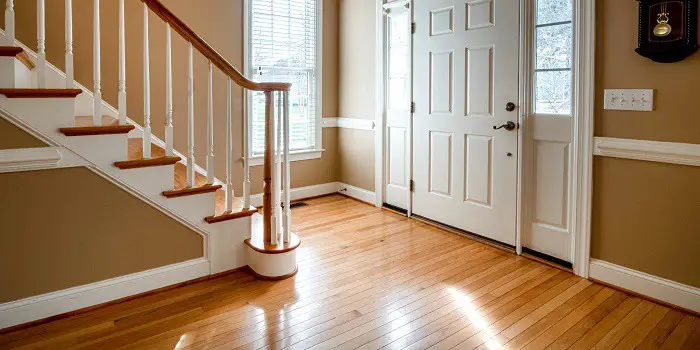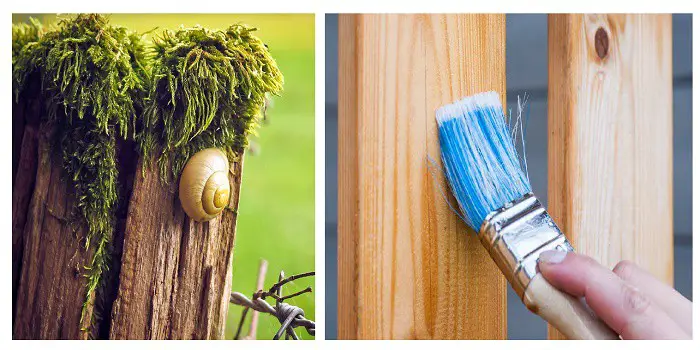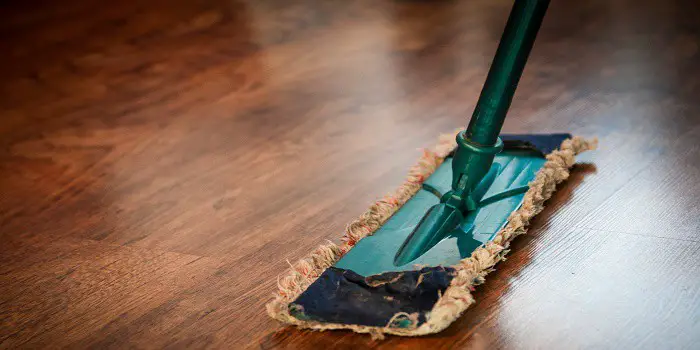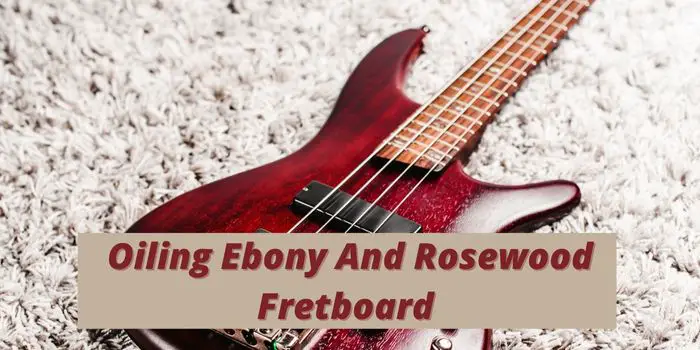
Guitar fretboards are usually made of raw and genuine Rosewood or ebony. Some of them are also made of maple, which will generally be varnished, and you don’t have to worry about oiling them at all.
The unfinished wood, like ebony and Rosewood, is left raw because these woods are quite oily by nature, so they don’t need any additional oiling.
However, with time and usage, these woods also need to be treated with oil to protect them from drying out.
The good thing is you can use a variety of different finishes. Mineral oil is the most common and effective oil for ebony and rosewood fingerboards.
Use it plain and simple, without any additives. And your fretboard will love you for it.
But whether cleaning and conditioning your fretboard is enough? Are there other finishing products you can try (like lemon oil or linseed oil)? How should you go about the process and much more?
Further in this post, I will discuss all of that so you can make an informed decision on what is the best oil for your guitar fretboard.
What’s the Best Oil for an Ebony Fretboard?
Before I answer that, let us know why you need to condition the ebony fretboard first.
Ebony is a very hard wood that has a very fine grain. It’s also quite oily, which means that it doesn’t come with the finish on it, and the wood doesn’t need any additional oiling for a few years of usage.
However, from time to time, the wood needs to be cleaned and treated with oil to keep them from drying out and cracking.
Your sweat, dirt, and grime are the real culprit – they will slowly build up on the ebony fretboard and can cause the wood to dry out.
Fortunately, there are a few different oils that people use on ebony fretboards, but the best I use (on my acoustic guitar) and will certainly recommend is 100% food-grade mineral oil.
I have used it for many years and found these seven key takeaways. These might be helpful for guitarists who are proud owners of acoustic guitar collections:
TIP 1- Always use a non-drying, very light-grade mineral oil to condition fingerboards.
TIP 2- Use the oil sparingly – once a year will be more than enough for most guitars.
TIP 3- Use a very small amount of oil. A little goes a long way. You don’t want to drench the fretboard; just lightly coat it.
TIP 4- Apply the oil with a clean, soft cloth. Rub it in well, making sure to get into all the cracks and crevices.
TIP 5- Wipe off any excess oil. You don’t want there to be a build-up of oil on the fretboard.
TIP 6- Let the oil soak in for a few hours or overnight if possible. Then buff the fretboard with a clean, soft cloth to bring up the shine.
TIP 7- Do not use any other oils such as Danish oil, Linseed oil, Tung oil, Coconut oil, WD40, 3-in-1 oil, etc. These will actually damage your fretboard rather than conditioning it.
If you follow these tips and steps to rehydrate the dry ebony or Rosewood fretboard, you will have a happy and happy guitar that will last for many years.
What about Orange Oil and Lemon Oil on the Fretboard?
Well, orange oil and lemon oil are different – they are not 100% food-grade mineral oil.
But still, many people recommend and use them on their guitars.
From what I have found, both these oils should not be used on the fingerboard. They aren’t very safe because of the acidic qualities in the oil – instead of doing good, they can be damaging to your fingerboard in the long term.
So, whatever the condition is, I would not recommend using any acidic products like orange oil, lemon oil, olive oil, or vinegar on your ebony, Rosewood, or maple fingerboards.
The best thing I can say about it is that they can help clean and shine the wood in the short term – but not moisturize it effectively.
With that said, there are a few “guitar lemon oils” on the market. According to the reports at guitaranswerguy.com, these oils are 100% safe when used in moderation on your guitar’s rosewood or ebony fretboard.
These oils are sold by well-known guitar companies, and they comprise very little real lemon oil or essential oils that can be damaging.
These oils rather have mineral oil as the primary ingredient, with a bit of conditioner, cleaners, and protectants that can help clean and shine the wood. And we know mineral oil is a fretboard-safe oil.
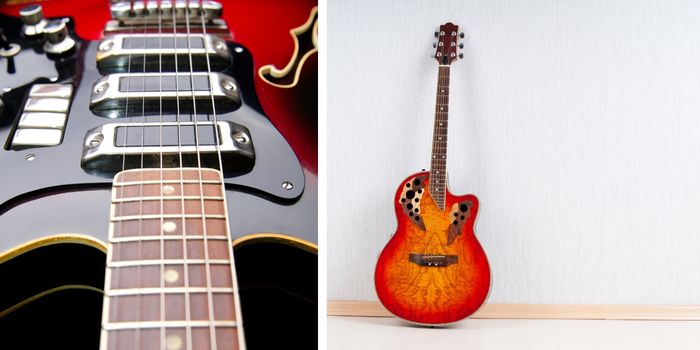
What to Use on Ebony and Rosewood Fretboard for Cleaning?
Rosewood is the go-to timber for fretboards and is recognized for its organic quality and antique appearance.
Martin D-28 guitars, for example, are well-made of high-quality Rosewood.
Ebony wood, however, is much harder compared to Rosewood, and it feels slicker to touch.
While Rosewood will produce a more balanced overall tone, ebony will produce a brighter and snappier tone.
Martin SC-13E, Yamaha LL-TA TransAcoustic, and many more (including electric), therefore, come with ebony fretboards.
It doesn’t matter what wood they are made of; you will need to keep them clean and free of gunk to make them look nice and last long.
What is the Best Way to Clean your Fretboard?
The answer really depends on the material of your fretboard.
For cleaning an ebony or rosewood fretboard, you’ll generally want to use wire wool and oil soap.
Here are the easy steps to follow:
Step 1. Remove the strings. This will make the cleaning process easy and save you some extra work in the long run.
Step 2. Get some wire wool. You’ll want to use 4.0 wire wool, which is fine and widely used for furniture polishing.
If you are not able to find it at your local hardware store, try a specialized store or order it online at stores such as Amazon.
Step 3. Grab some oil soap made for furniture cleaning. Murphy is a popular household name brand. Oil soap has the magical ability to lift dirt off of rosewood and ebony fretboards.
Step 4. Start cleaning your fretboard. Take a small amount of wire wool and apply a drop of oil soap to it. Gently go up and down the fretboard in a linear motion, avoiding circular motions.
Step 5. Wipe away the residue with a clean cloth. Make sure to remove all the soap and dirt from the fretboard.
Step 6. Put the strings back on your guitar and tune it up. You’re now ready to rock out with a clean and fresh fretboard.
TIP: If the dirt or gunk is too stubborn to clean on your old guitars that haven’t been touched for a while, you can use a simple combination of lemon oil and vinegar to clean your fretboard.
Lemon oil will remove the build-up of grime and dirt, while vinegar will disinfect the fretboard, and it can kill any bacteria that might be present.
Final Thoughts
To summarize, the best oil for an ebony fretboard is 100% food-grade mineral oil.
Just pour some oil on a lint-free cloth and rub it on the fingerboard. Make sure to rub it in and get it all nice and saturated. Wipe off any excess oil with a dry cloth. You can do this once a year or so or whenever the board starts to look dry.
Cleaning and conditioning will clean the dirt, grime, and gunk off your fretboard while also keeping it healthy, hydrated, and looking great. So, get it right and have fun playing your favorite tunes on a clean and shiny fretboard.
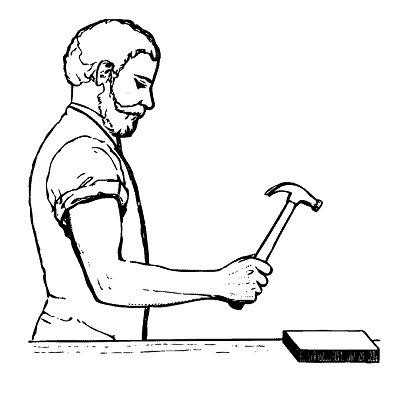
Hi, I am Mark Garner a professional carpenter, woodworker, and DIY painter. I live in the small city of Peoria, Arizona as a semi-retired woodworker. I have started this blog with a simple motive to help you with my wood experience in this sector. If you like to know more about what I love doing and how it all got started, you can check more about me here.

